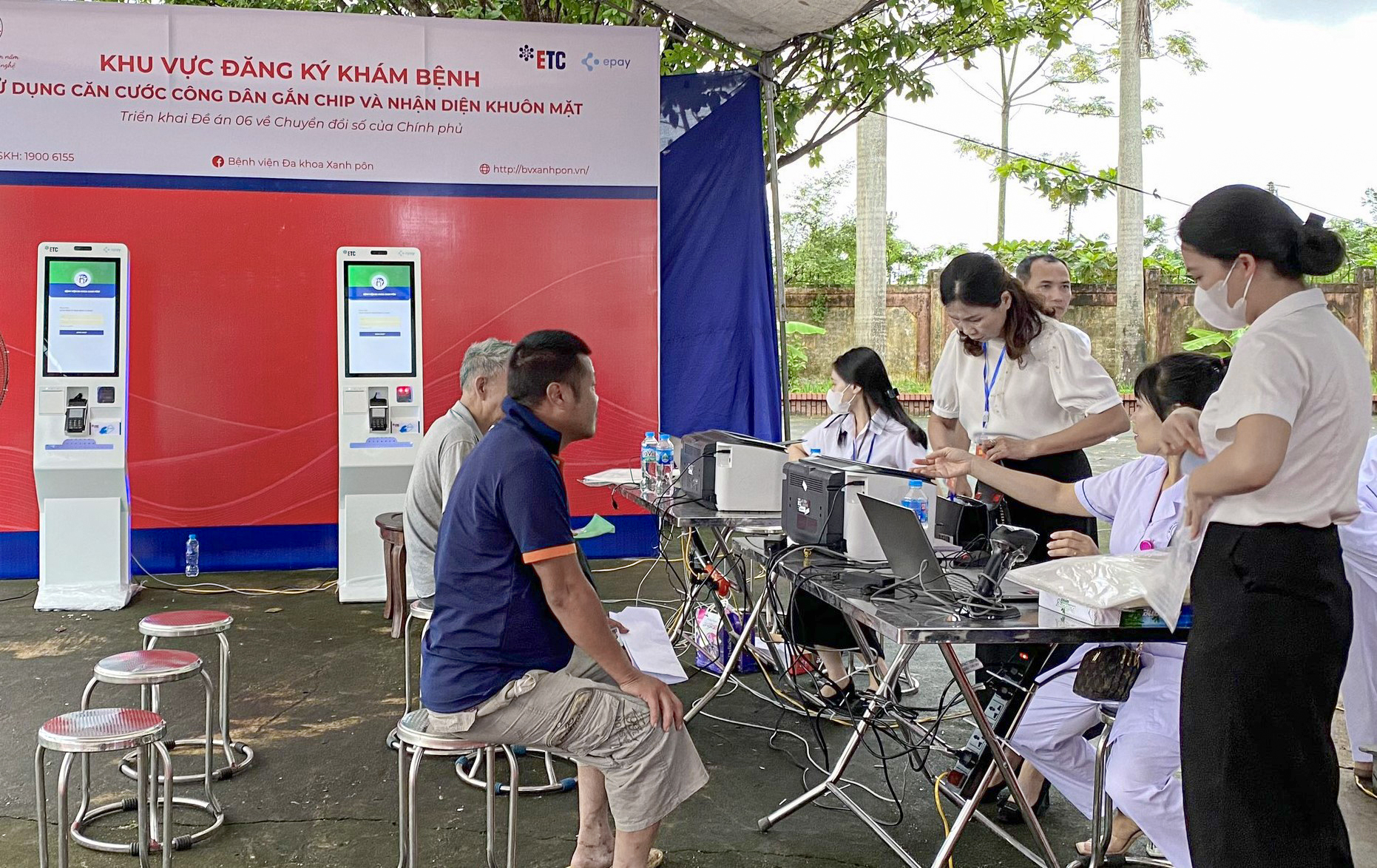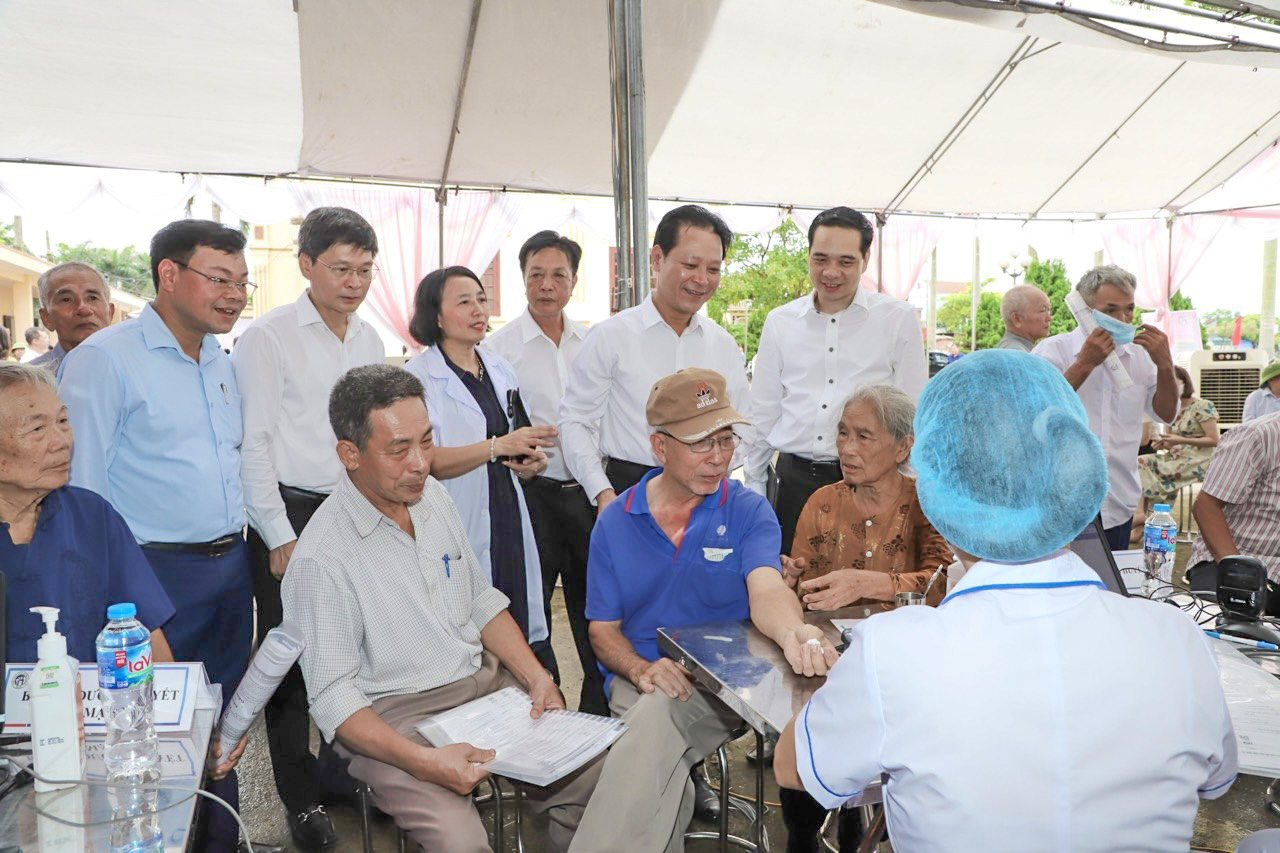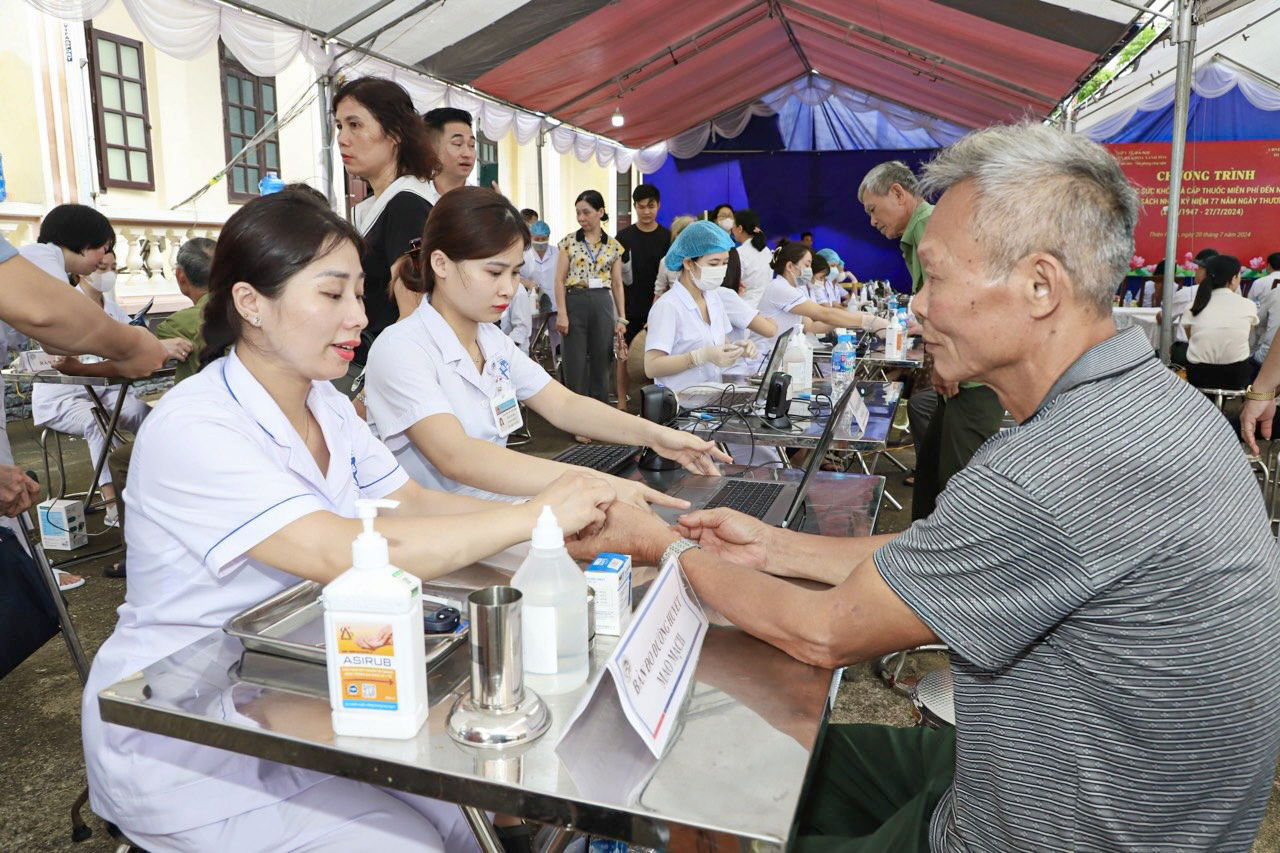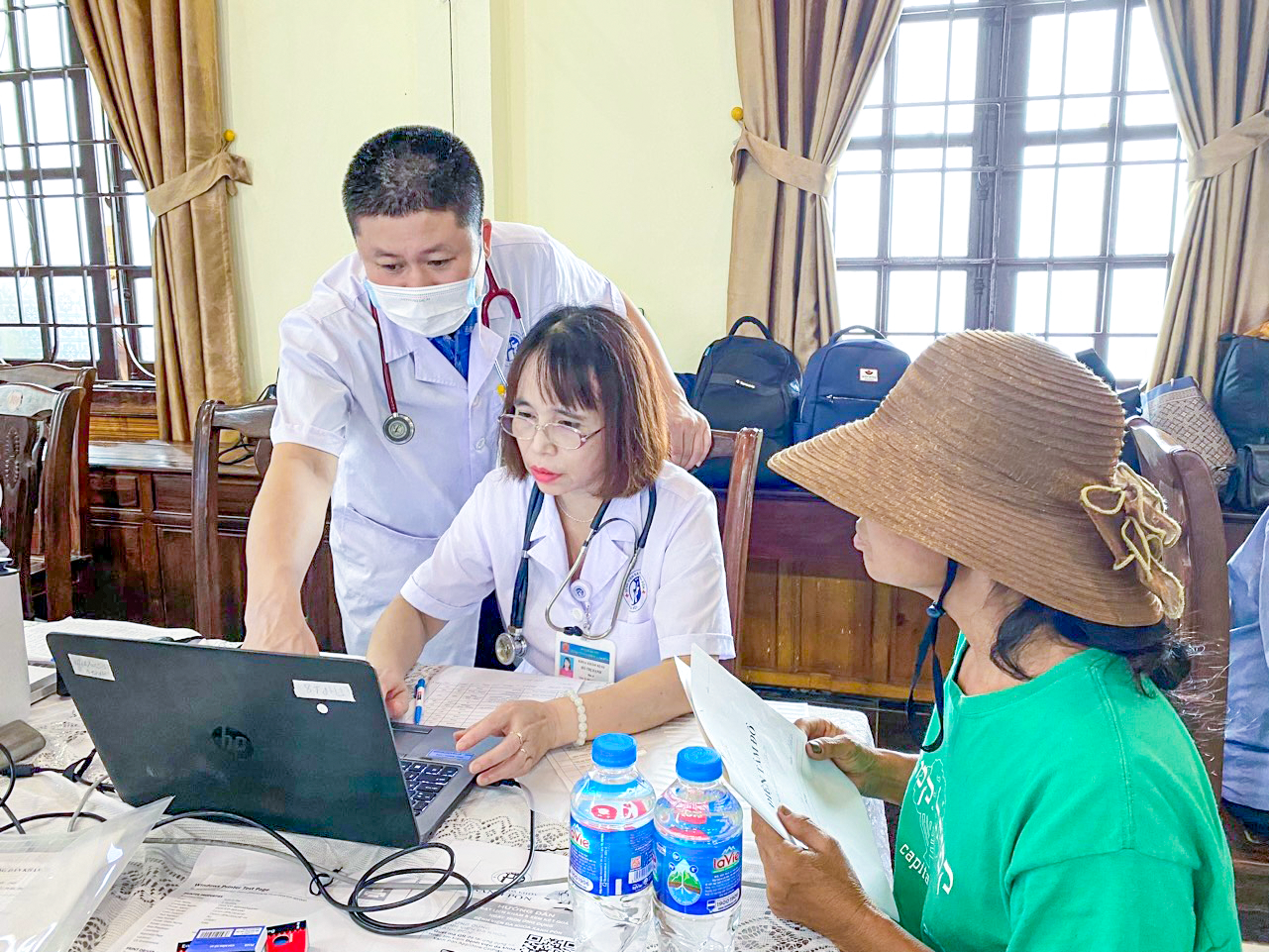ETC & EPAY assist the installation of health check-up kiosks in Tien Lu: Promoting policy, Spreading responsibility
Towards the 77th anniversary of War Invalids and Martyrs Day, ETC and EPAY collaborated with Xanh Pon General Hospital to organise a mobile health check-up model on kiosks for around 400 policy beneficiaries in Thien Phien and Thu Sy communes, Tien Lu district, Hung Yen province.
This is an opportunity for every Vietnamese person in general, and ETC, EPAY in particular, to pay tribute to heroes, martyrs, wounded soldiers, and sick soldiers; promote the "Repaying Gratitude" movement; and "All people take care of families of wounded soldiers, martyrs, and people with meritorious services to the revolution". Mr. Do Xuan Tuyen, Deputy Minister of Health, and Mr. Nguyen Duc Long, Director of Xanh Pon General Hospital, were among those who attended the health check-up session.


When visiting Thien Phien commune and Thu Sy commune for medical examination, people do not need to bring many types of documents or medical records; instead, they can use the CCCD card with chip and facial recognition at the automatic kiosk system to quickly complete the registration without having to queue or wait in queue. Ms. Nguyen Mai Phuong, EPAY "We feel very proud, because this is an extremely meaningful, practical and responsible activity to show gratitude to policy families, people with meritorious services to the revolution, contributing to creating strong changes in social development management, implementing social progress and justice, improving the quality of life and happiness of the people."


Using biometrics to register for a medical checkup and treatment through self-service Kiosk is one of 16 models in the Government's Project 06 group of socioeconomic development utilities, built on the VNeID platform for distributing online public services and linked to the National Population Database to authenticate citizen information. ETC and EPAY are collaborating with hospitals to deploy the model, which aims to assist patients in quickly and easily self-registering for medical examinations and paying hospital fees; information on the patient's chip-embedded ID card and face is stored throughout the registration and medical examination processes. Simultaneously, doctors and nurses can obtain information and track the patient's medical examination history more swiftly, readily, and comfortably.



